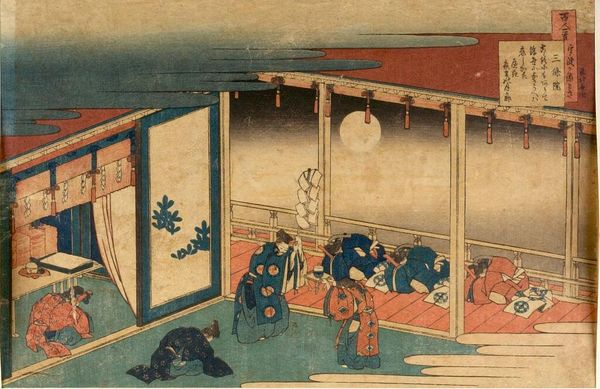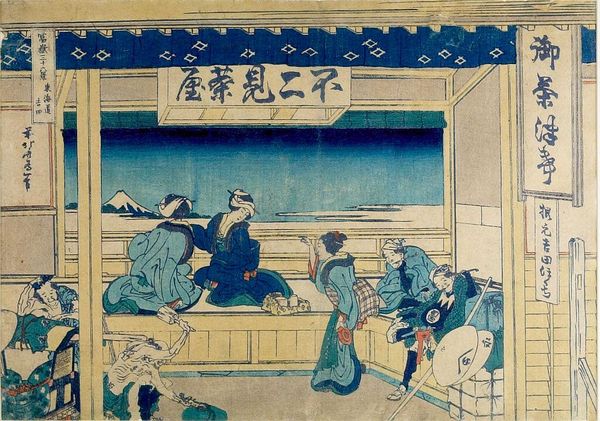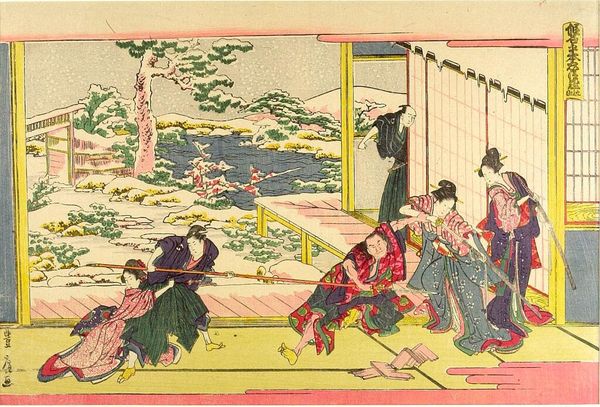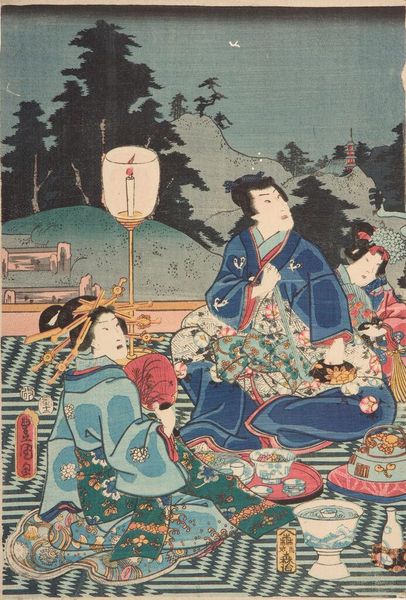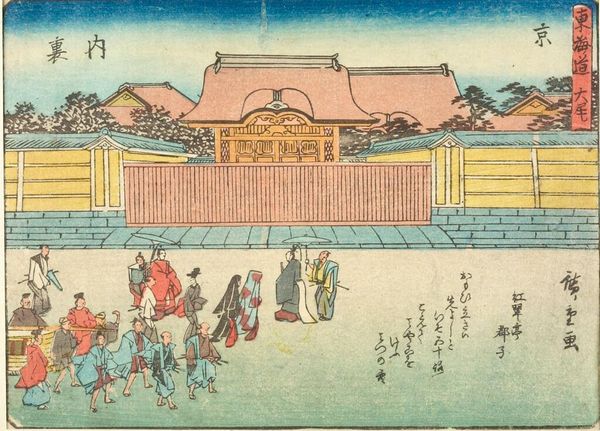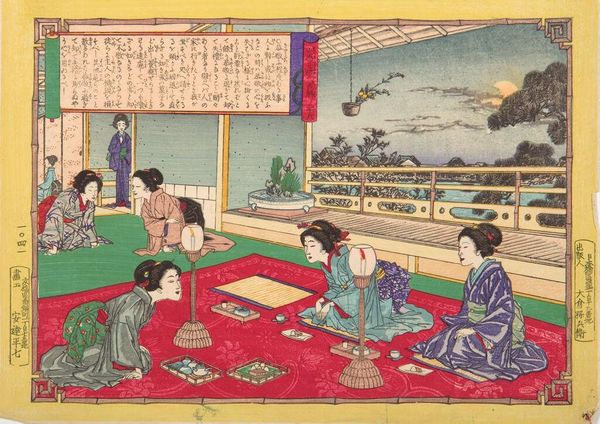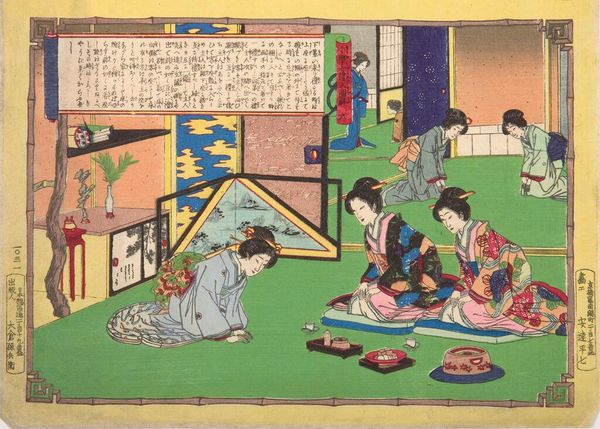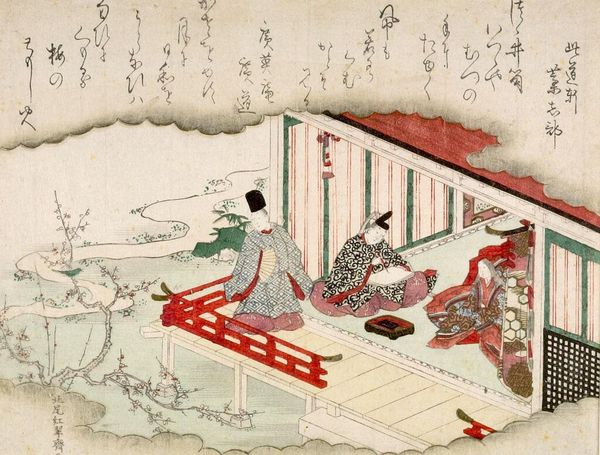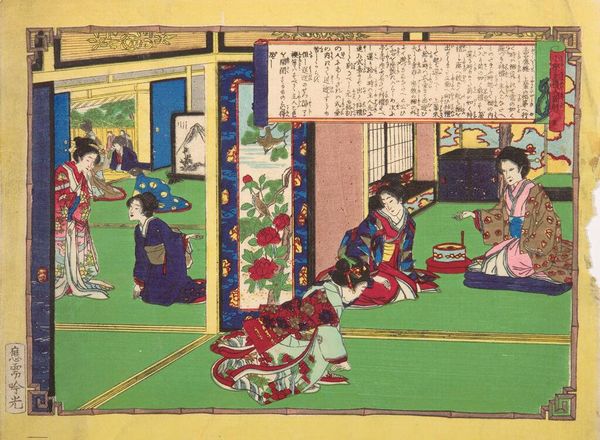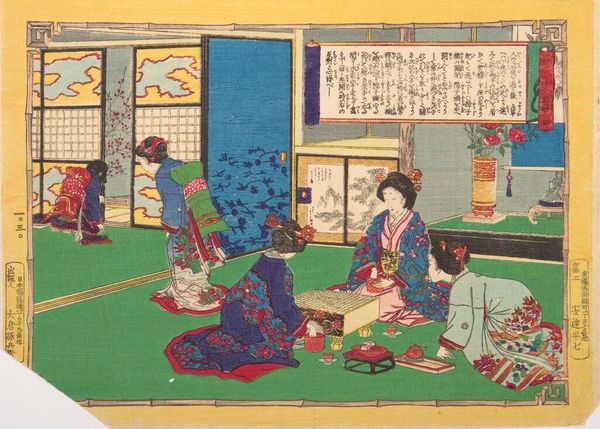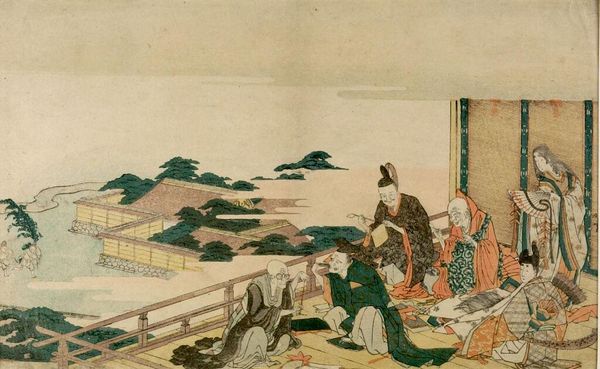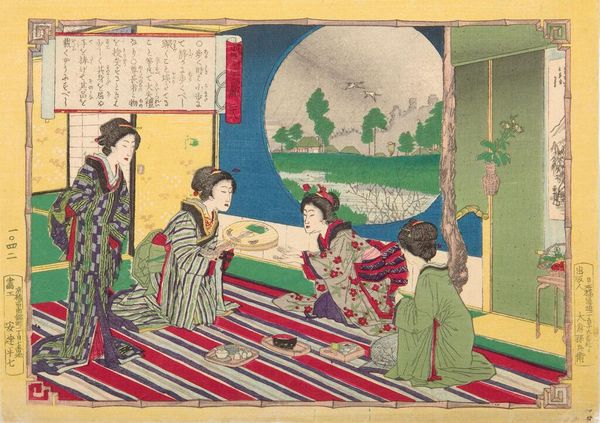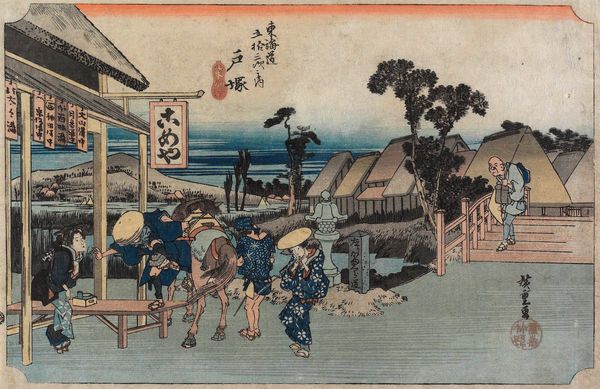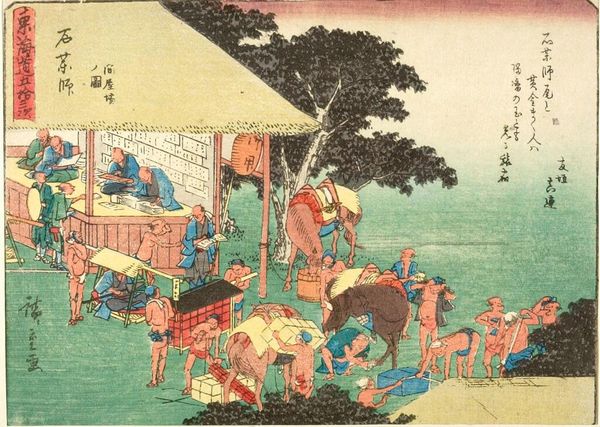
Poem by SanjÅ-in, from the series One Hundred Poems Explained by the Nurse (Hyakunin isshu uba ga etoki)
0:00
0:00
Dimensions: horizontal Åban: H. 25.3 Ã W. 36.8 cm (9 15/16 Ã 14 1/2 in.)
Copyright: CC0 1.0
Editor: This woodblock print by Hokusai, "Poem by SanjÅ-in," part of the series "One Hundred Poems Explained by the Nurse," really captures my attention. The full moon seems so prominent. What symbols or deeper meanings do you see in this composition? Curator: The moon, often a symbol of feminine power and cyclical time, is here juxtaposed with the bowing figures. Notice their postures, almost mirroring the moon's fullness and humility. Does this evoke any feelings about the relationship between humanity and nature? Editor: It does make me think about respect and finding our place in the world. Curator: Indeed. Hokusai uses the moon to remind us of larger forces beyond our individual control, a common theme in Japanese art. It's a dance between human action and natural cycles. Editor: I never thought of it quite that way. Thanks for pointing that out. Curator: It encourages reflection, doesn't it? Art can reveal our shared cultural understanding.
Comments
No comments
Be the first to comment and join the conversation on the ultimate creative platform.
